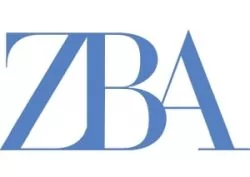Introduction
As a temporary relaxation consequent to the COVID 19 pandemic, the Indian capital markets regulator, Securities and Exchange Board of India ("SEBI") has issued several circulars. These are summarized below. This covers the SEBI (Listing and Disclosure Requirements), Regulations, 2015, as amended ("LODR"), the instructions to credit rating agencies ("CRA") and matters affecting foreign portfolio investors investing in Indian securities ("FPI"), mutual funds, real estate investment trusts (REITs"), infrastructure investment trusts ("INVITs'), trading members and market intermediaries. It should be noted that the Ministry of Home Affairs, Government of India on 24 March 2020 ordered closure of all commercial and private establishments, with various exceptions which included capital and debt market services as notified by SEBI. Consequently stock exchanges, clearing corporations, depositories, custodians, mutual funds, asset management companies, stock brokers, trading members, clearing members, depositories, registrar and share transfer agents, credit rating agencies, debenture trustees, foreign portfolio investors, portfolio managers, alternative investment funds, investment advisers have been exempted until 3 May 2020 and are open for business.
Summary of Changes
1. Filing and Company Meeting Timelines Extended
Listed entities have an extended timeline for filings and compliance pursuant to recent SEBI circulars of approximately 3 weeks to one month with the new deadlines as described below:

Fines or other enforcement actions for failure to comply will only apply after 30 June 2020.
2. Capital Raising – Public Issues and Private Placements
Companies compliant with LODR are permitted to use their audited financials as at 30 September 2019, for the following issuances on or before 31 May 2020: (i) public issue of non-convertible debentures; and (ii) private placement of commercial papers and non-convertible debentures and preference shares. For public issuances, limited review for the stub period can be used.
3. Prior Intimation to Stock Exchanges for Board Meetings
Under LODR, prior notice to stock exchange of board meetings is compulsory: (i) at least 5 days before the meeting if financial results are to be considered; and (ii) 2 working days in other cases. To ease the timing burden, this has been reduced to 2 days until 31 July 2020.
4. Loss of Share Certificates and Issue of Duplicate Certificates
Loss of share certificates and issue of duplicate share certificates needs to be notified to stock exchanges within 2 days. Any delay between 1 March and 31 May 2020, will now not attract any penalty.
5. Credit Rating Agencies
Reserve Bank of India ("RBI") has permitted moratorium on loan/working capital facilities payments solely due to COVID-19 for 3 months. CRAs are dependent on issuers and third parties for information collection which is impaired due to the current lockdown. CRAs need to finish the exercise on a best effort basis. SEBI relaxed the requirements of recognition of default for the period of the RBI moratorium until 31 May 2020. Each CRA has to assess if it is of the view that the delay in interest or principal payment has arisen solely due to the lockdown conditions creating temporary operational challenges in servicing debt. Additionally, timelines for (i) rating action and press releases are extended and (iii) disclosure on CRA websites by 30 days.
6. Foreign Portfolio Investors
SEBI has temporarily deferred (not waived) FPI requirements to submit original and/or certified documents, pursuant to FPI operational guidelines ("Operational Guidelines") until 30 June 2020. Designated depositories participant ("DDP") and custodians can consider and process FPI registration requests or ongoing know your customer ("KYC") requirements on the basis of scanned version of signed documents (not originals) and copies of documents which are not certified, provided received from:
- e-mail IDs of their global custodians or existing clients where these details are already contained in their records; or
- e-mail IDs of new clients received from domains which are duly encrypted with transport–layer security or similar encryption or documents are password protected.
Original and/or certified documents are required by 30 July 2020. If not received, FPI accounts will be blocked for any fresh purchases. In case documents are still not received within 3 months of said deadline, DDPs and custodians are required to report these cases to SEBI for appropriate action.
7. Relaxation for Funds, Portfolio Managers, REITs and InvITs
Due dates for monthly filings for alternative investment funds, venture capital funds and portfolio companies for the periods ending 31 March, 2020 and 30 April, 2020 have been extended by 2 months, over and above the timelines required. Changes in brokerage costs, upfront fees and operating expenses chargeable by and reporting for portfolio managers which were to apply from 1 May 2020, have been extended by 2 months to 1 July 2020. Regulatory filings and compliance deadlines for REITs and INVIT for the period ending 31 March 2020 have been extended by 1 month.
8. Continuation of Phase – II of UPI with ASBA
Phase III of the unified payments interface ("UPI") with application supported by blocked amount ("ASBA") was to be introduced as a payment mechanism for retail investors in public issues of equity shares and convertible instruments. Intended timelines of T+3 will be further considered by SEBI.
9. Extension of Deadline for Implementation of Stewardship Code
SEBI required mutual funds and all categories of AIFs to comply with a Stewardship Code ("Code") in relation to their listed equities investments from 1 April 2020. The Code is a principles based framework requiring entities to formulate a policy aimed at enhancing corporate governance, performance, material environmental, social, and governance opportunities or risks, capital structure in their investee companies as how they manage conflict and how they monitor investee companies. SEBI extended the deadline for implementation to 1 July 2020.
10. Temporary Relaxation under the Takeover Code
The due date for filing disclosures customarily required by 15 April 2020 for the financial year ending 31 March 2020, have been extended to 1 June 2020, being: (i) disclosure of shareholding and voting rights of persons who hold 25% or more of voting rights in a listed entity; (ii) shareholding and voting rights of promoters of listed entity; and (iii) encumbrances made by promoters, each, pursuant to the SEBI (Substantial Acquisition of Shares and Takeovers) Regulations, 2011.
11. Trading Relaxations and Mutual Funds
Relaxation has been provided until 17 May 2020 with respect to penal provision for non-collection or short collection of margins by brokers (implemented from 1 April 2020). Reporting in the cash and derivatives segment has to be done by brokers. Trading certifications which are expiring during the period 15 March 2020 to 29 June 2020 have been extended to 30 June 2020. Trading members working from designated alternate locations are exempted until 17 May 2020, from penal provisions for not maintaining call recordings of orders/instructions received from clients. However, the trading member and stock exchange must send an order confirmation. Trading members will be placed in risk reduction mode once 90% (instead of the existing level of 85%) of the members' capital towards margins is utilized.
Extension has been provided until: (i) 31 May 2020 for client funding reporting and reporting for artificial intelligence and machine learning applications, (ii) 30 June, 2020 for (a) filing internal audit report for half year ending 31 March 2020; (b) compliance certificate and net worth certificate for margin trading; (c) risk based supervision; and (d) net worth certificate for all members for half year ending 31 March 2020; and (iii) 31 July 2020 for filing systems audit report.
Risk management framework for mutual fund liquid schemes extended by 1 month i.e. up to 1 May 2020. Revised limits for sector exposure for open ended debt oriented mutual fund schemes has been extended by 1 month, i.e. up to 1 May 2020, and the requirement to not hold in excess of 15% in unlisted non-convertible debentures has been extended to 30 April 2020. Valuation of money market and debt securities based on mark to market valuation has been extended by 1 month, to 1 May 2020. Disclosure of unaudited financial results and commission paid to distributors extended to 31 May 2020 and 10 May 2020 respectively.
12. Relaxation for Intermediaries and Market Participants
Extension of 21 days has been provided by SEBI to registrar and transfer agents ("RTA") and issuer companies for processing 12 types of investor requests and compliance requirements which include processing of requests for re-materialisation, transmission, name change, replacement of share certificates and SCORES complaints and amalgamation of folios for physical shares.
13. Relaxation for Depository Participants, RTAs, KYC Registration Agency ("KRA") and Stock Brokers
The period beginning from 23 March 2020 to 17 May 2020 has been excluded for computing existing timelines for: (i) processing demat request forms by issuers, RTA or market participants; and (ii) uploading client KYC application forms and supporting documents on KRAs system.
14. Digital Signatures
Authentication or certification of any filing to stock exchanges required under LODR must be done using digital signature certifications until 30 June 2020.
15. SEBI and SAT
Head office, regional offices and local offices of SEBI are operating with minimum employees. The Securities Appellate Tribunal is currently closed.
Conclusion
SEBI has been one of the earliest and pro-active regulators to come out with their COVID-19 measures to ease logistic and operational concerns for market participants. Although commercial work is continuing in the lockdown, the pace is slower, and therefore even assuming the lockdown is lifted, several of the new SEBI deadlines of May or June 2020 will need to be extended. This is particularly in light of the fact that the capital markets hub in India is Mumbai which is in one of the worst affected States, Maharashtra and already the Maharashtra lockdown has been extended to 30 April 2020. Some of the changes such as investor grievance reports, could have been extended across products to cover all securities and not just municipal bonds. We believe that international flights will be the last aspect of the lockdown to be lifted and therefore practically couriers to deliver originals are likely to be delayed and this small issue could cause operational issues for FPIs to be able to trade after 30 July. Of course this is a fluid and evolving situation, but we expect that some of the above deadlines could be extended, particularly the ones falling in May 2020.
The above is a generic analysis and should not be regarded as a substitute for specific advice based on the facts of a client's objectives and specific commercial agreements reached. Please do reach out to us at mail@zba.co.in for any queries.

